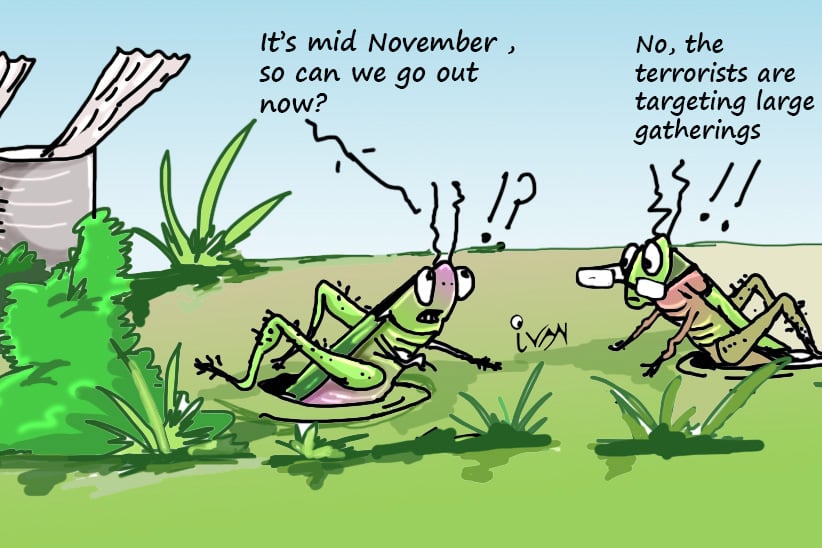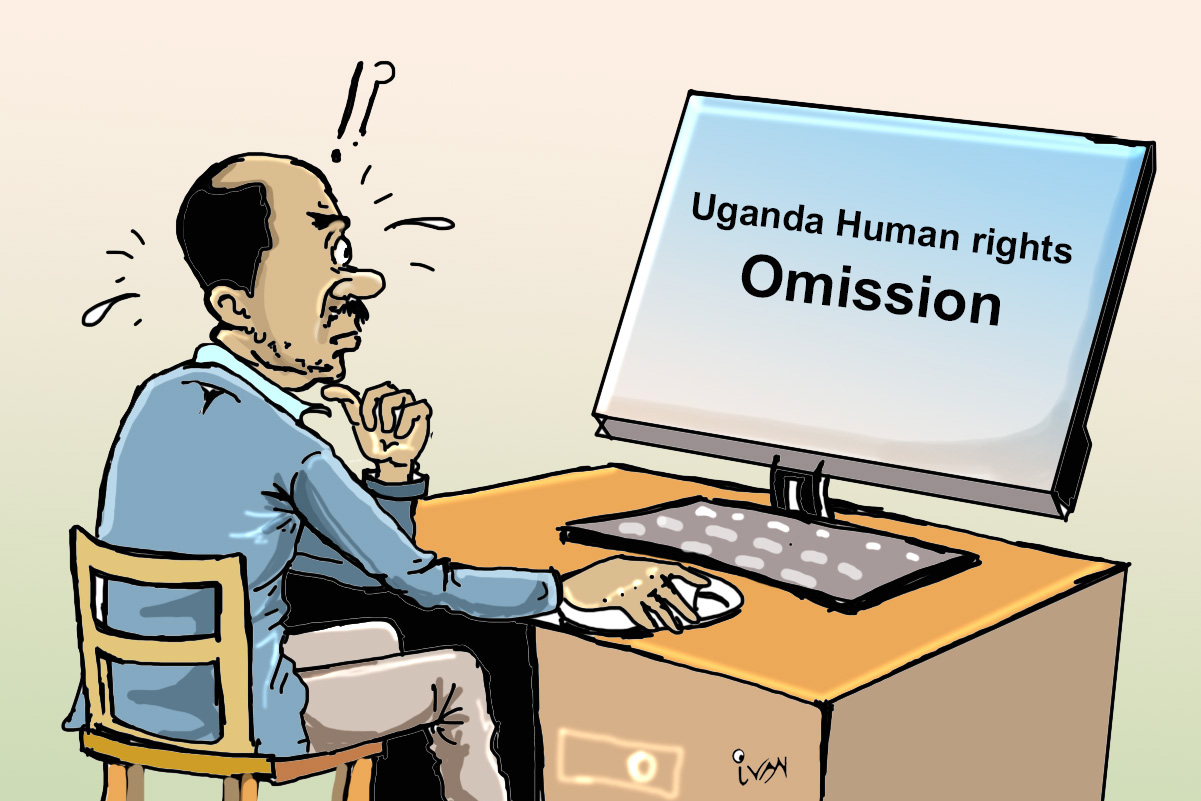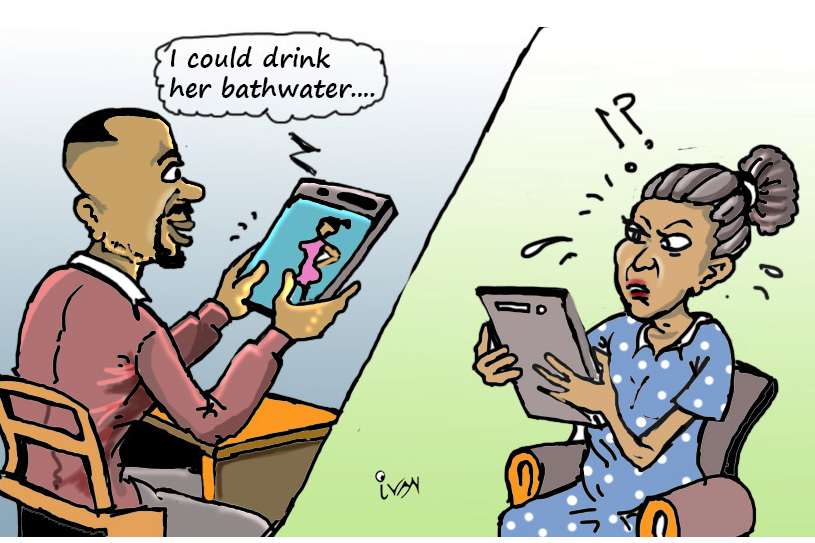Prime
Satire: Musene explains why Nsenene is avoiding Uganda

What you need to know:
- Questions: Would you come to a country where Umeme has no vision because it has blinded itself with darkness and yet you need bright lights to mate? Would you come to a country where every time the leader speaks, he blames ADF and Monitor, the paper that writes good things about Nsenene?
A man called Museveni is bemused that Nsenene has yet to come out to mate in their blissful month of November. And a man called Musene thinks he knows why.
First, Musene claims that Rwanda is to blame.
“Nsenene comes out to light, they feed and mate under bright lights, but you’re in Jinja and know how much darkness Umeme supplies,” he said.
I wasn’t amused by these brazen claims so I reminded Musene that Nsenene breed more in Masaka than in Jinja and that even in its capital of Masaka, the insects had refused to show up.
“Then blame Rwanda,” he blurted with the confidence of a government official diverting mabaati with their full signature at OPM to go with.
“Why do you think Rwanda waited for November to power the entire highway from Kigali to Rubavu via Musanze with streetlights? Imagine all that light on a stretch of 90km or so, why would Nsenene come to Masaka to mate under groggy solar lamps that are only erect because they were lucky to survive the corruption of local leaders?”
That was quite plausible given the insects can migrate at their own will. But I didn’t want to believe a hoot. My mind went back to the man Museveni.
Yes, the man called Museveni said the month of November is called Museneene and the man called Musene immediately claimed that he was conceived under the influence of Nsenene.
“Why do you think I was named Musene?” the man from the fishing village of Musoli in Mayuge District, who now lives in Masese in Jinja City, said.
“The thing is, Nsenene coming out means they have come to mate. If you have ever gone to catch those insects, then you must have grabbed some that are copulating live.”
Musene claims that his mother had once cheekily warned his sisters against standing near boys while out for grasshoppers lest they would be knocked up like their father had done with her.
“I don’t want the family to be full of Musenes however delicious Nsenene is,” Musene claims he overheard his mother say.
Anyway, in times like this when the famed insect professor Ogenga Latigo is in political hibernation, we have no alternative but to rely on Musene and his assumed expert birthright on Nsenene affairs.
So why are the insects not showing up in swarms as usual? Did Busoga Kingdom stop them from coming to mate because it is the season for Isebantu and Inebantu?
Musene said that was unlikely because the kingdom only asked humans to only dance normally even if a dance is a vertical expression of horizontal desires.
Invoking his assumed expertise in insects, Musene said Nsenene develop each year from eggs laid in the ground by adult females the previous season.
“The earth has a stable temperature for the eggs and the grass cover shields the eggs from predators,” he said.
“When the temperature and soil moisture reach the correct tolerance, the eggs hatch and nymphs appear. They eat grass, shed their skins and grow wings so they can fly. They then migrate, breed and lay new eggs for next season.”
Musene said he was suspicious of the avalanche of terror alerts issued by Uncle Sam and his cousin from the UK.
He suggested that since these guys said terrorists were targeting large gatherings, Nsenene feared for dear lives.
The biggest problem, he added, were the mabaati thieves. These people stole the most important tool used in harvesting Nsenene. The insects are very afraid, too afraid to come out now.
“If they can steal the mabaati that the insects love to fall on, what makes you think such people wouldn’t steal the eggs that the Nsenene are laying for the next season?” Musene asked.
Well, if you were Nsenene, would you come to mate in Uganda when the royals of Busoga have said there should be no chaw?
Would you come to a nation where mabaati is stolen by leaders who know how valuable they are for the Nsenene harvest?
Would you come to a country where Umeme has no vision because it has blinded itself with darkness and yet you need bright lights to mate? Would you come to a country where every time the leader speaks, he blames ADF and Monitor, the paper that writes good things about Nsenene?
Musene’s mother said she wouldn’t. So do I.





